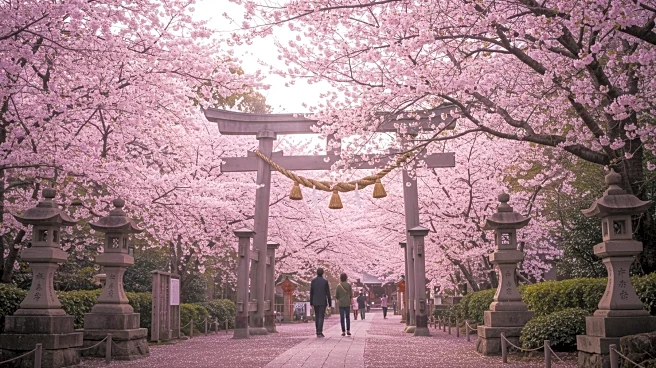What's Happening?
Japanese agriculture minister Shinjiro Koizumi and Finance Minister Katsunobu Kato visited the Yasukuni Shrine in Tokyo on the 80th anniversary of Japan's surrender in World War II. Prime Minister Shigeru Ishiba made a ritual offering at the shrine but did not visit. The shrine is controversial as it enshrines Class-A World War II criminals, and visits by Japanese officials often provoke criticism from neighboring countries like China and South Korea. Koizumi emphasized the importance of respecting those who sacrificed their lives for Japan.
Why It's Important?
The visits to Yasukuni Shrine by Japanese officials are significant as they often lead to diplomatic tensions with China and South Korea, who view the shrine as a symbol of Japan's militaristic past. These actions can affect Japan's foreign relations and regional stability. The visits also highlight ongoing debates within Japan about how to reconcile its wartime history with current national identity and international relations.
What's Next?
Continued visits to the shrine by Japanese officials may lead to further diplomatic protests from neighboring countries. Japan's government may face pressure to address historical grievances and improve relations with China and South Korea. Domestic debates on how Japan should remember its wartime past are likely to persist, influencing political discourse and educational policies.











